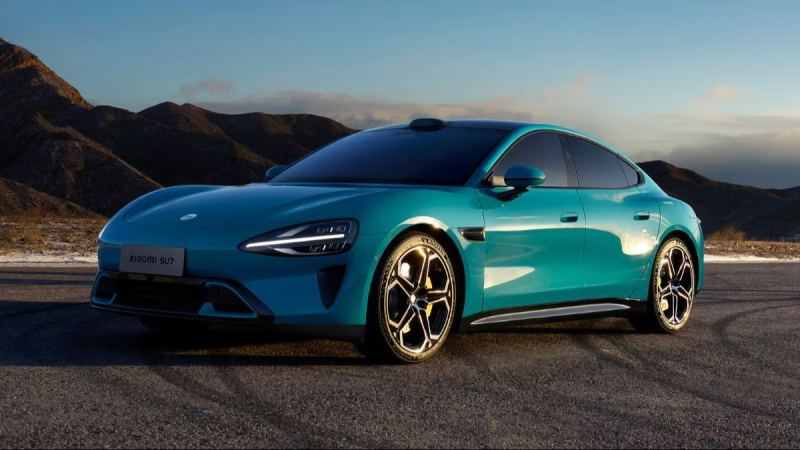Industry data indicates that Xiaomi (1810.HK), a Chinese smartphone manufacturer, sold over 7,000 units of its debut model, the SU7 sedan, in April, making it the eighth-largest electric vehicle upstart in the nation.
With competitors engaged in a severe price war due to declining demand, Xiaomi’s aggressive entry into China’s congested EV industry is expected to further upend the largest auto market in the world. In China, Xiaomi is already well-known due to its well-liked smartphones and household products.
It becomes part of the new wave of automakers focused on EV production, which also includes Nio (9866.HK0) and Xpeng (9868.HK). Establishment EV makers like Tesla (TSLA.O), BYD (002594.SZ), and Geely (0175.HK) as well as legacy brands like Volkswagen are not included in this category.
Since the model’s late March launch, Xiaomi has delivered 7,058 SU7s in April—its first full month of sales. This year, the company hopes to sell over 100,000 devices, or an average of 11,618 each month for the rest of the year.
It is now the eighth-biggest EV startup in the nation, surpassing the Avatr EV brand from state-owned Chongqing Changan Automobile (000625.SZ), according to Reuters’ examination of monthly sales data from ByteDance’s car information website Dongchedi.
An increasing number of upstarts have entered China’s EV industry, including EV sub-brands from established automakers like Geely’s Zeekr and GAC’s Aion, as well as pure EV manufacturers like Nio and Xpeng.
One of the new upstarts is the Harmony Intelligent Mobility Alliance (HIMA), which is supported by Huawei. Aito and Luxeed are two brands covered by the HIMA; in April, their combined EV sales were 20,819 units, according to Dongchedi data.
Aito M5 and M9 are two Huawei vehicles that are available in both extended-range and pure EV versions. Since both versions are counted as EVs, the real number of pure EV sales would be fewer than what is claimed. A breakdown of such versions’ sales is not provided by Dongchedi.
With over 11,000 units expected to be sold each month for the rest of the year, Xiaomi is expected to compete fiercely with VW, which has done better than most other foreign heritage car manufacturers when it comes to taking on Chinese electric vehicle players.
13,108 EVs from VW’s ID series were delivered in April via two joint ventures in China. The cars were priced at 215,900 yuan ($29,845.59), which is less than Xiaomi’s basic SU7.
According to some analysts, the market is expected to become even more optimistic about Xiaomi in the upcoming years. Sales of the Xiaomi vehicle are predicted by HSBC Qianhai to reach 240,000 units in 2025 and 348,000 units in 2026.
With 120,234 sales last month, local champion BYD topped China’s EV sales statistics. The SU7 was not as expensive as the more accessible variants, which drove more sales.
The massive American company Tesla (TSLA.O) announced that sales of its Model 3 and Y in April totaled 31,421 units.
In China, the base model of Xiaomi’s SU7 costs almost $4,000 less than the base model of Tesla’s Model 3.
Many EV manufacturers are now focussing on international markets as they battle the fierce competition in the China market.
According to figures from the China Passenger Car Association, domestic sales of passenger vehicles fell 5.8% from a year ago in April, while exports of the vehicles reached a record high.


